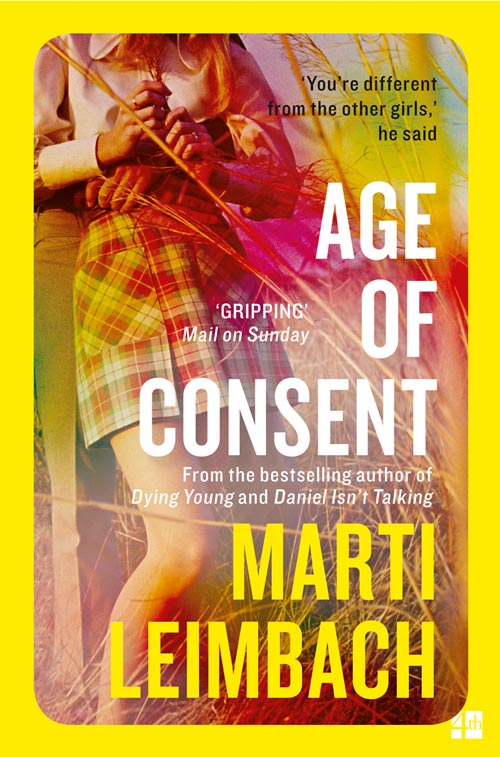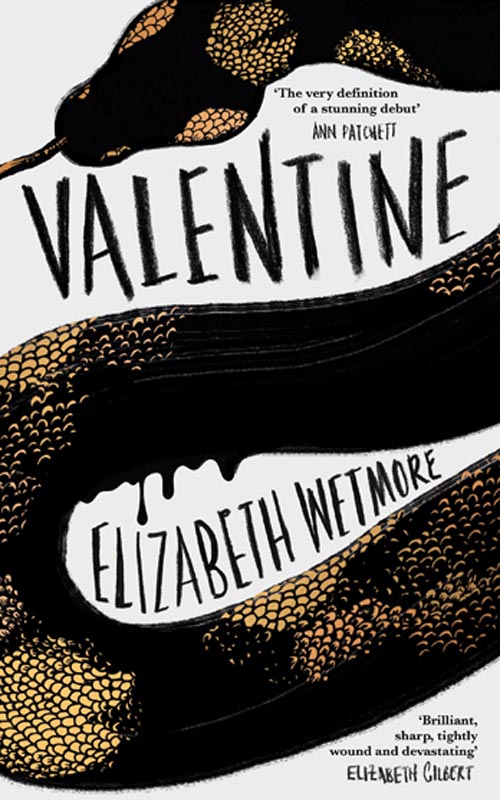In my novel, Age of Consent, a newly teenaged girl is seduced by a man in his twenties through a process known as “grooming.” The idea of grooming is to create an emotional bond with a child that can then be used to foster a sexual relationship. I’ve experienced this process myself, back in the late 70’s when I was fourteen-years old. My husband, who was aged eleven when his abuser used him for sex, was also extensively “groomed.”
We didn’t know that term then, perhaps it didn’t exist. What my husband knew was that his teacher preferred him, gave him special attention, gave him tea and treats and took photographs of him in the exclusive boarding school in Buckinghamshire, England, where he began boarding at the age of eight. Had he appealed to the headmaster—and such a possibility did not occur to him as part of the grooming process is to install secrecy in the child-victim—he would have received no great help. The headmaster of the school, Peter Wright, is currently serving an eight-year sentence for sexually abusing boys.
Boarding schools and overnight camps are perhaps the most dangerous place for a child to come across a paedophile. Trapped inside the walls of an establishment that has become a child’s new “home”, sexual abuse is difficult to avoid once a child is targeted by a paedophile. Other adults in charge must be vigilant in preventing it, which means they may have to strike up difficult conversations or take drastic, unpleasant action against a colleague, neither of which they want to do unless they are certain. And paedophiles make sure no one is certain.
Grooming can take many forms. Paedophiles are opportunists, looking for a way to get a child alone. My mother worked full-time; my father was dead. It was easy for the man who abused me (not a teacher) to drive me home when I missed the bus or take me to restaurants and rock concerts, or let me swim in his apartment complex’s pool on impossibly hot, humid summer days in semi-rural Maryland. All nice things. He told me how special I was, how bright and warm and pretty. It wasn’t so bad—at first.
When the sex arrived it was painful and horrid. By then, I felt it was part of the bargain and I endured it. At least he paid attention to me while nobody else seemed to. The whole, awful episode ended dramatically when I was a few months shy of my fifteenth birthday. Unable to stand being with him one more second, I told him it was over. He threatened to kill himself. He got out a knife. He thought we were having a love affair; I don’t know what I thought, only that I needed to get away.
Could this kind of thing happen to your child (or my child) today? Grooming is relatively now relatively simple through the internet where anyone who wishes to engage in conversations with children, establish relationships, or instill trust in a child can do so. There are many examples of children being sexually exploited (for photographs and videos) or persuaded to meet up with a stranger, or even abducted, after a period of grooming through such innocuous sites most of us use, like Facebook and Twitter.
So what challenges does the internet present to parents trying to avoid their children and teenagers from being sexually abused and traumatized by strangers? Here are a few points to consider:
Access to children has never been easier. Whereas in previous days, paedophiles could only exploit from children available within their physical proximity, they can now cast a wide net through the internet and apply the law of numbers. If they fish long enough on the world wide web, they know they will find a few candidate for sex. From there, it is only a matter of choosing.
*Paedophiles know that parents do not want to isolate their children entirely from social media. They also know that privacy can easily become secrecy, so encourage a child to keep quiet about his or her social exchanges on the internet.
*Your child can be groomed for sex or take part knowingly or unknowingly in a sex act without leaving your home. Sexual images can be sent or received; sex through webcams can take place at any time of day.
*With phones now belonging to individuals instead of groups, and holding many of the features of a full computer, it is increasingly difficult to know what is going on in your child’s life.
*Facebook, Tumblr, Twitter and the like can all be used by opportunistic criminals who can target a child easily, then pinpoint the location of a child’s home, school and friends.
*Pornography is pervasive on the internet. It is so much part of our culture that it is considered by many as an ordinary part of sex. Even non-porn sites like Youtube, Instagram and Twitter are filled with pornographic photographs and films. How is a child to know what is happening to them, or what is being proposed, isn’t normal or right when the media mostly tells us that all sex is good, right, and inevitable?
*90% of children between the ages of 8-16 have seen pornography on-line. Even without a perpetrator or abuser, these children are affected by abusive and often violent sexual images.
*The internet is available from the time a child can sit in a chair, but statutory sex education does not exist at all. Even if it did, how would we configure it so that it would help a child to know what is abusive sex and what is not? Issues of consent are complex and sometimes intellectually challenging for the age level of children who are already in danger of being groomed.
*And don’t forget that teenagers are at risk. Considered a subsection of paedophilia, hebephilia is a condition in which a person sexually prefers pubescent children. Sex offenders may feel justified in preying on teenagers with secondary sex characteristics. The sex industry does everything it can to encourage this, presenting women looking as young as possible. That the actresses used are “barely legal” is part of the sell.
The sophistication of technology and the internet means the pervasiveness of pornography, the threat of paedophiles and the scope of outside influences upon our children’s lives is international in scope. It is easy to despair of any hope to protect our children. But here is the good news: keeping communication open with children, talking to them and listening, is still one of the best ways to protect them. And if we need tools to hold sometimes difficult conversations, we have more help than ever thanks to…you guess it…the internet. The NSPCC has a list of books arranged in age groups, that we can share with our children to help them stay safe. (https://www.nspcc.org.uk/preventing-abuse/child-abuse-and-neglect/child-sexual-abuse/preventing-child-sexual-abuse/ )
But don’t be complacent even if your child talks to you a lot. Sexual abuse is so shameful to us all—even adults find it almost impossible to talk about. If there is any hope for our children it is in communication which is why so many organisations encourage open talk with children about what is okay and not okay when it comes to touching.
I hope today’s children are better at this than in previous times. It took me decades to get up the courage to write Age Of Consent. The novel isn’t biographical—that is, the characters are invented and the story completely made up. However, there is plenty about the experience the girl in my book that is similar to my own, primarily that more than anything she doesn’t want to tell.





